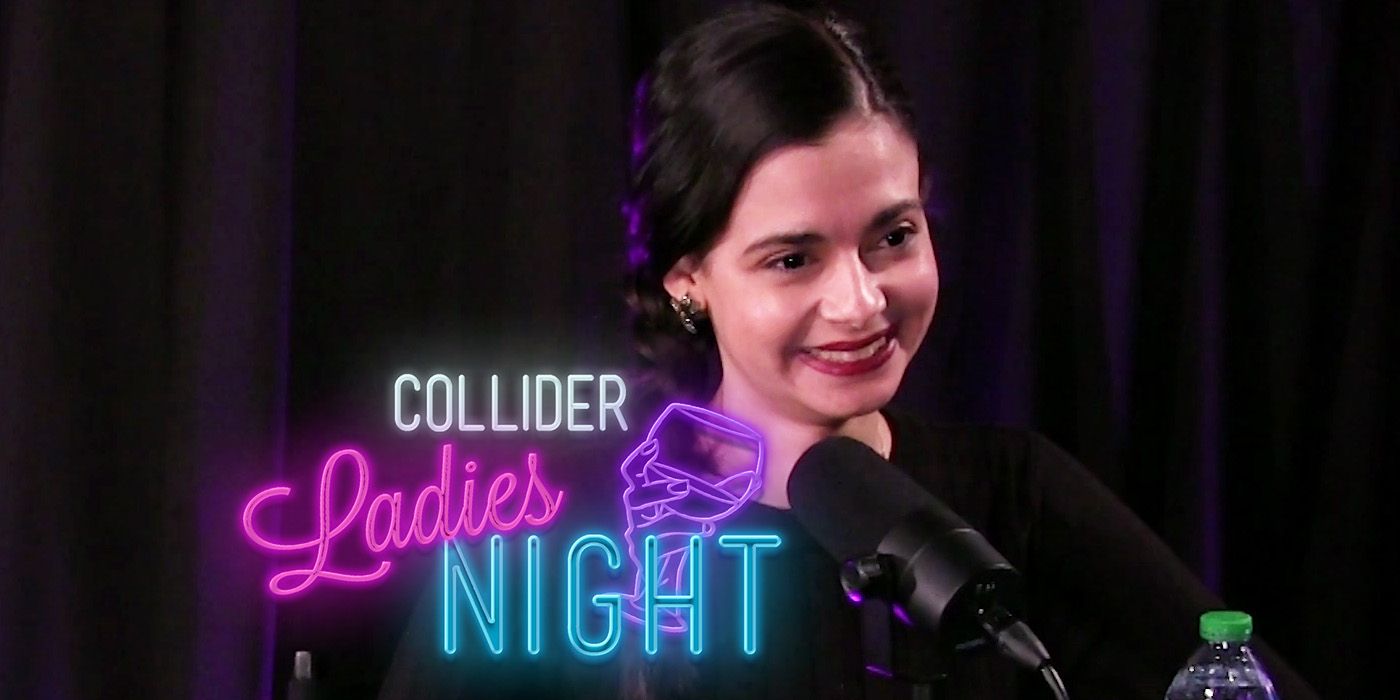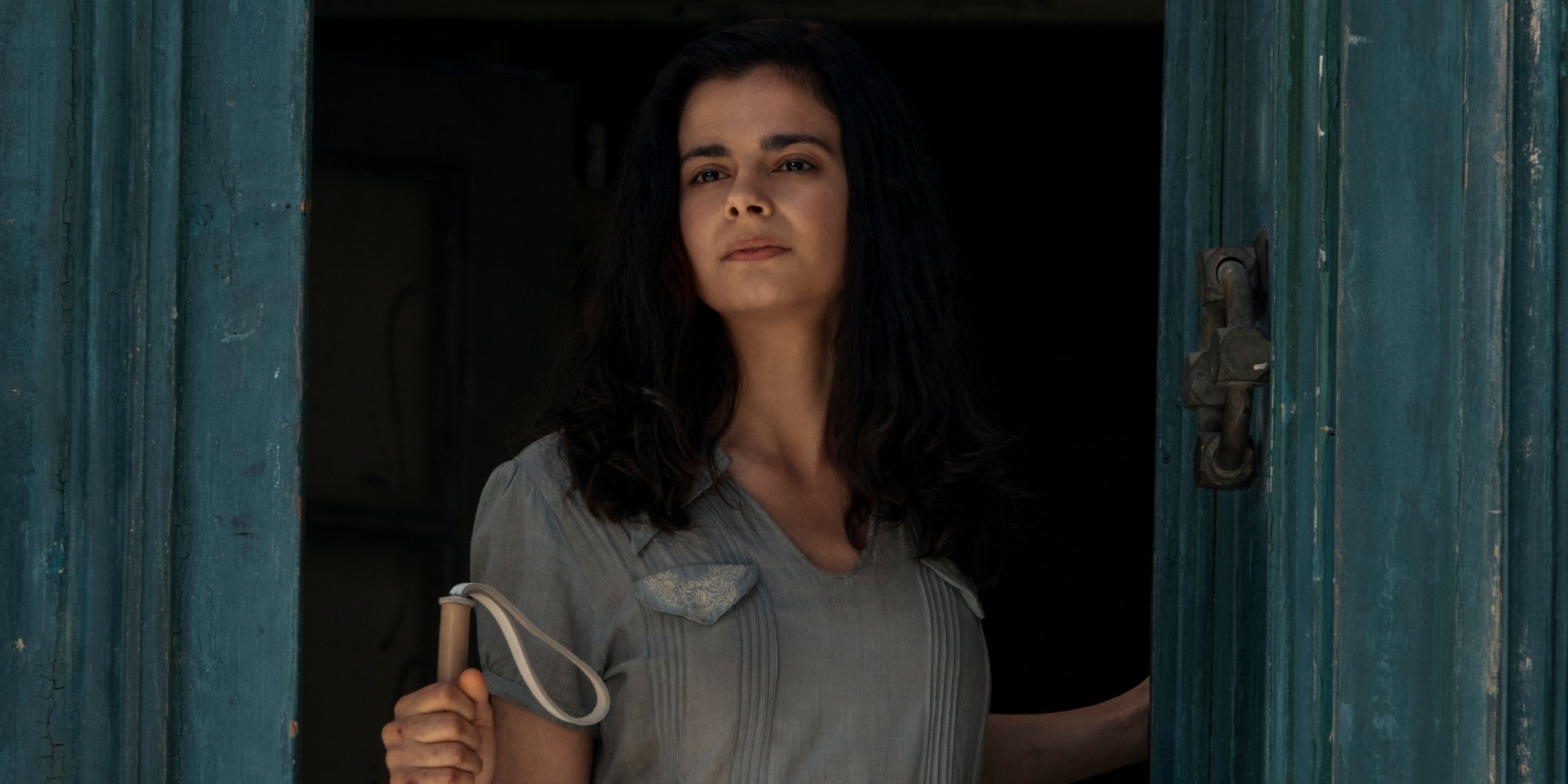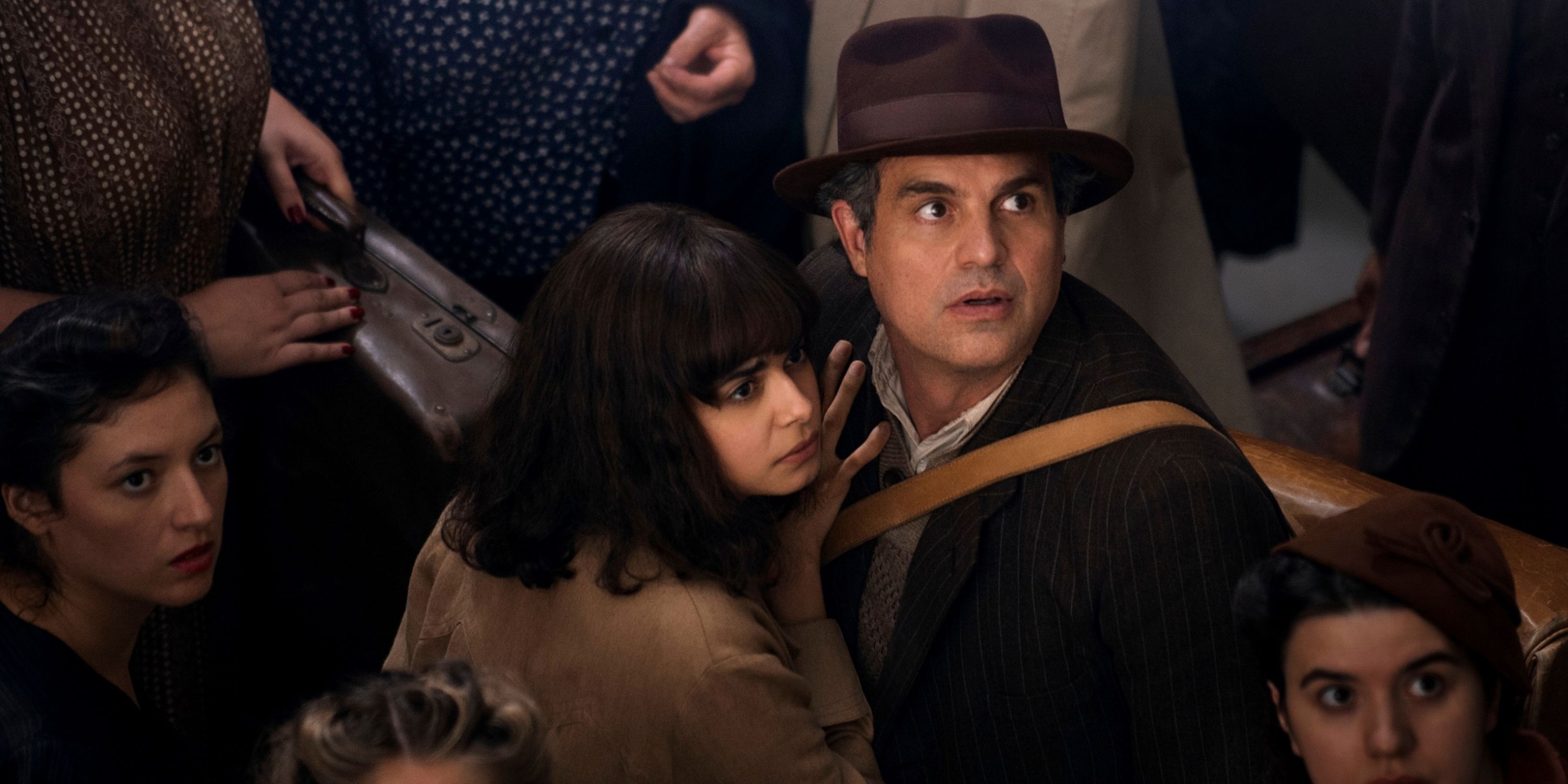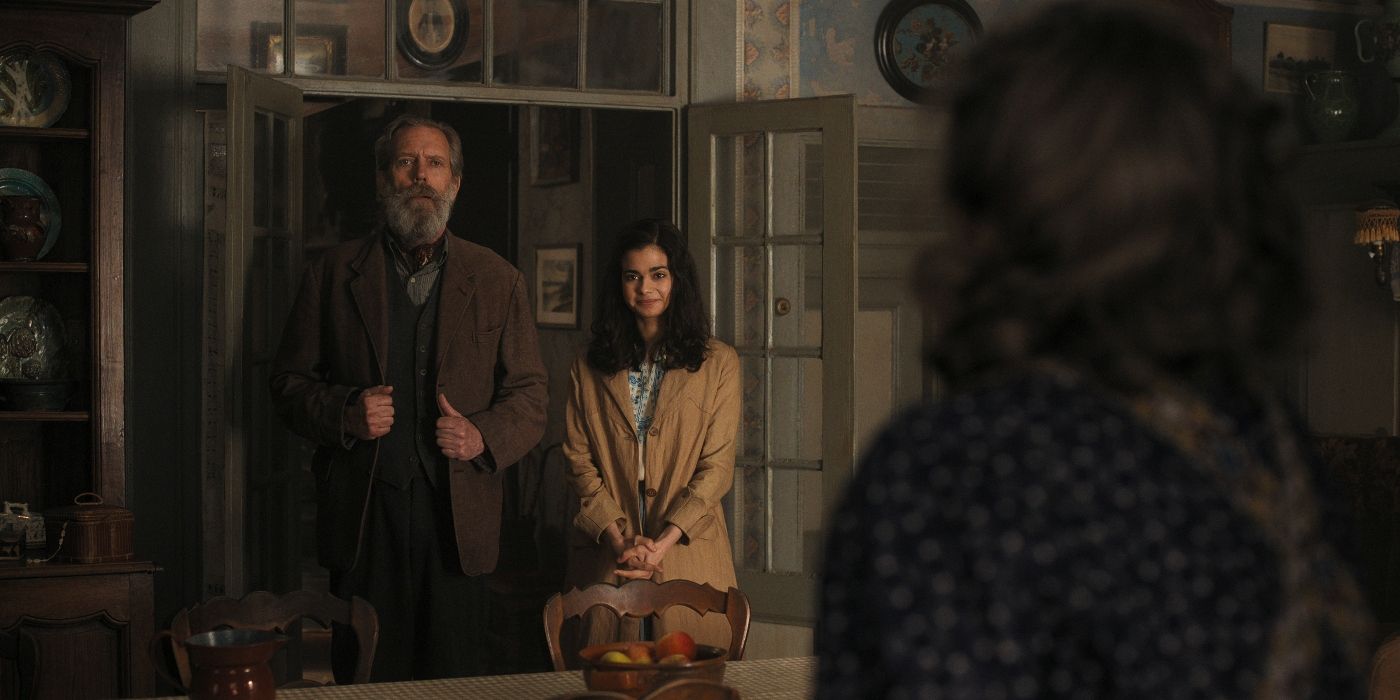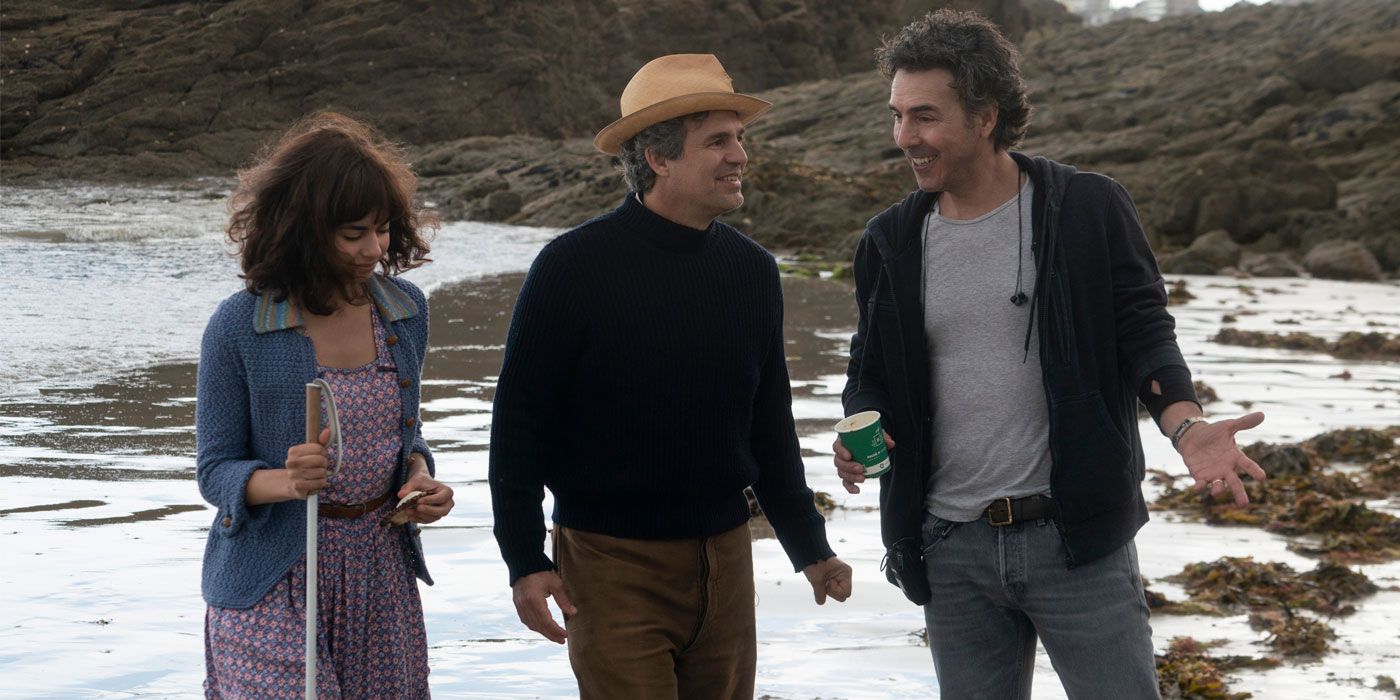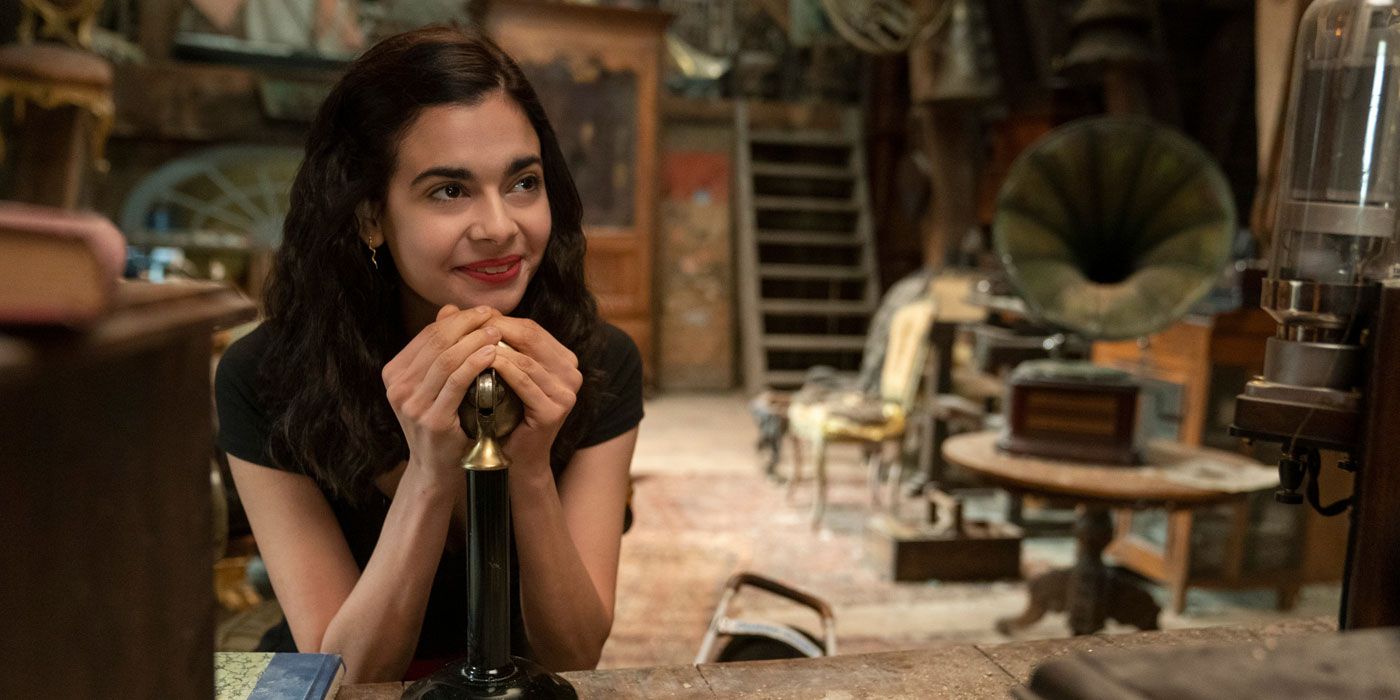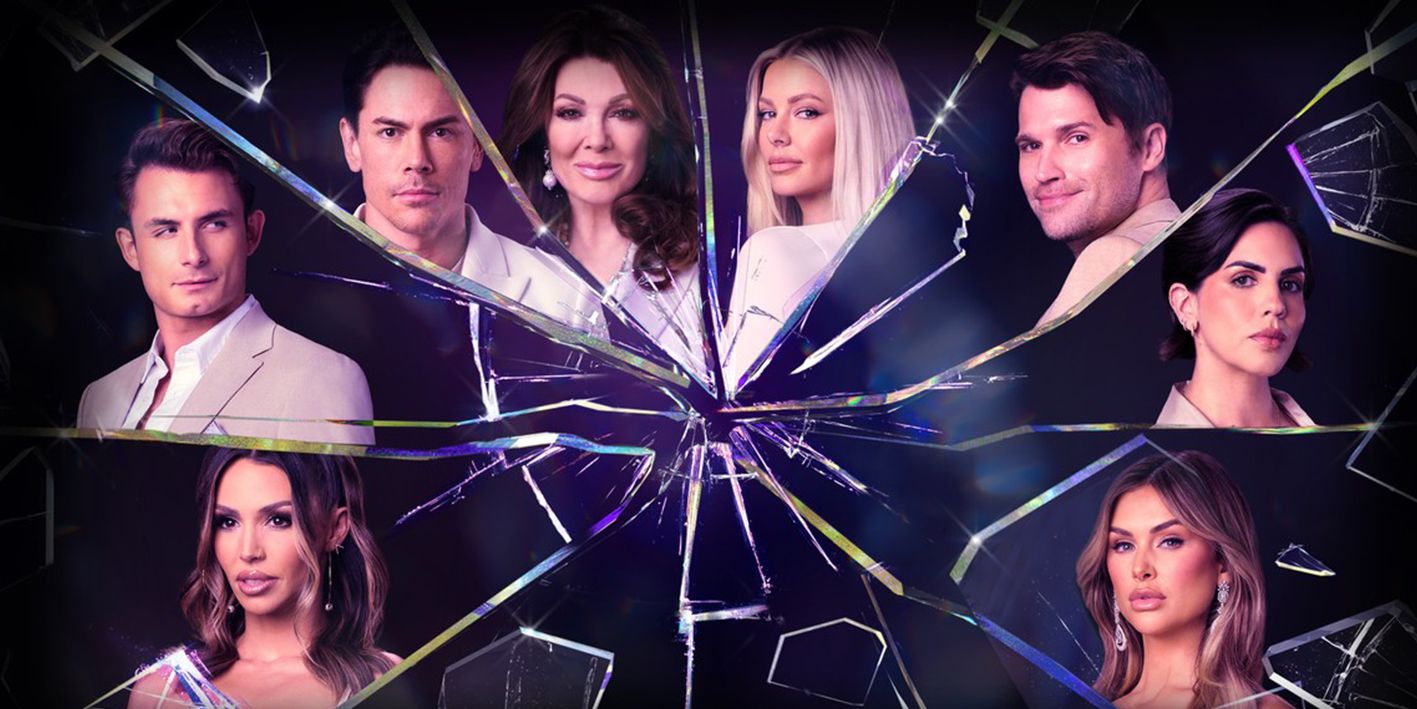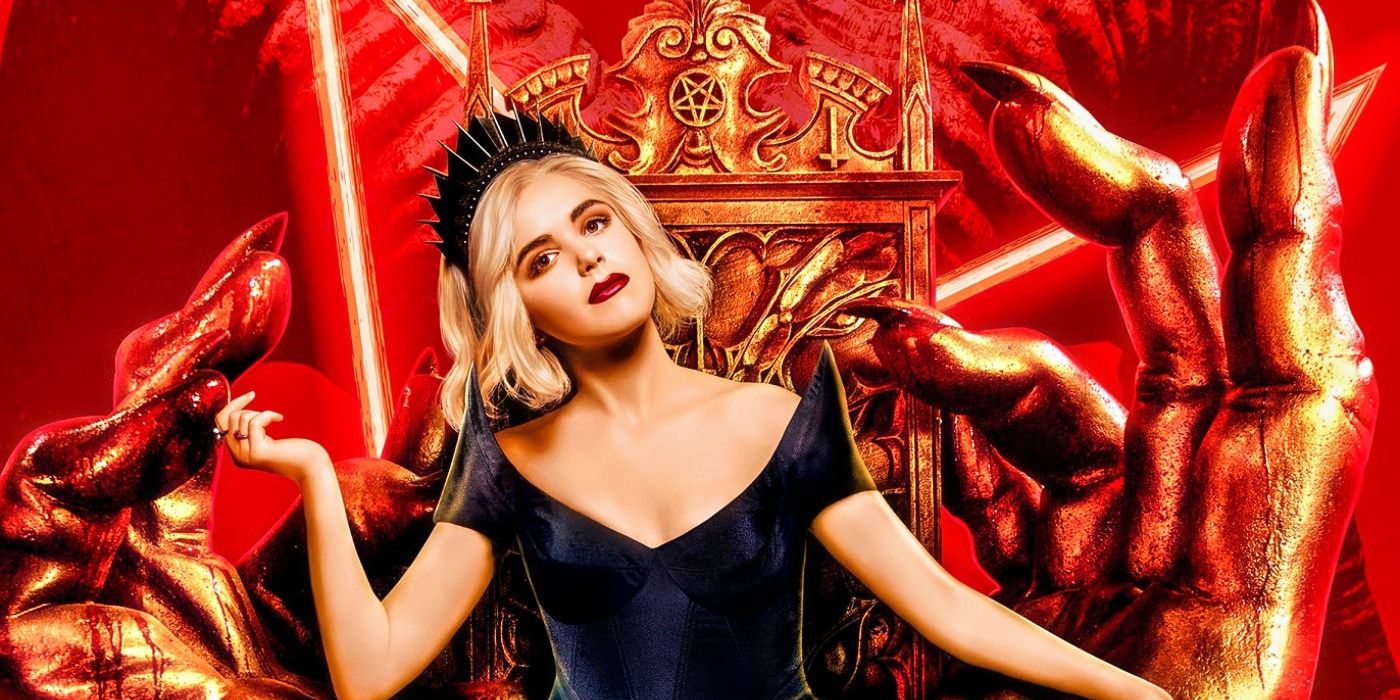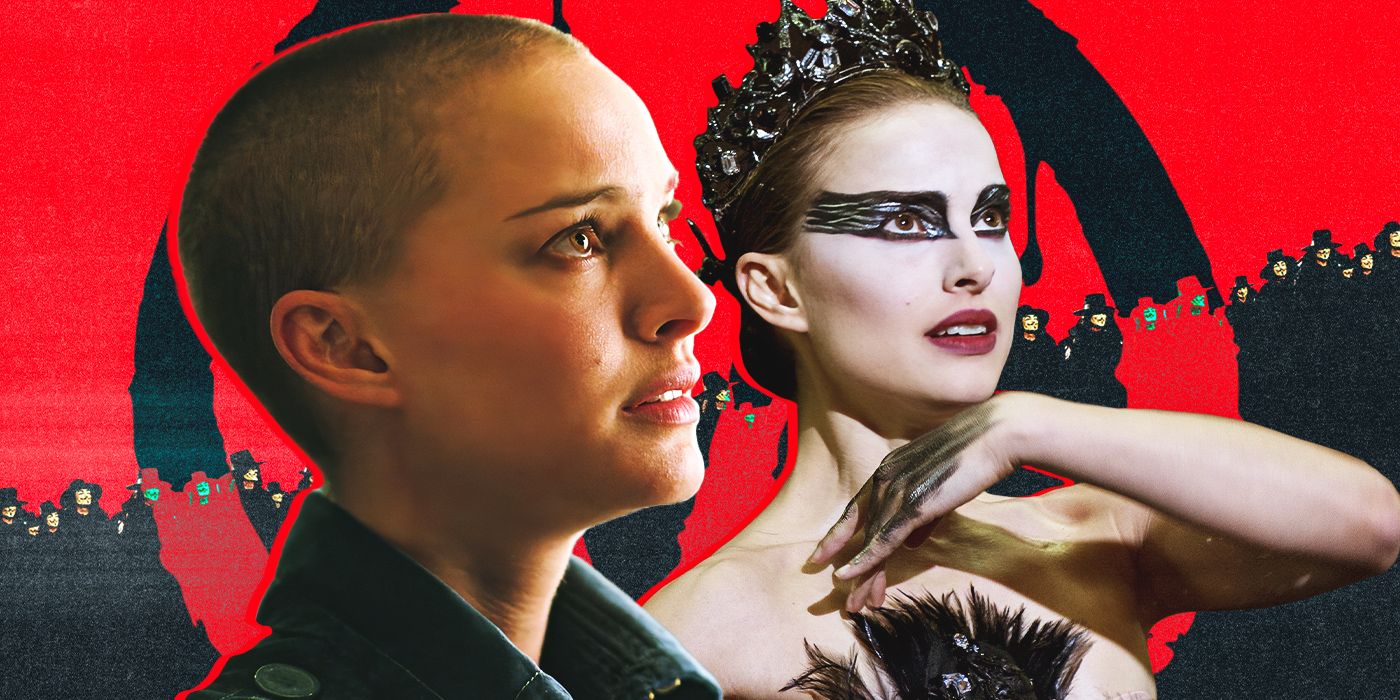The Big Picture
- Netflix’s All the Light We Cannot See marks Aria Mia Loberti’s very first professional acting gig, and it just earned her a Best Breakthrough Performance nomination at the Independent Spirit Awards.
- While on an episode of Collider Ladies Night Pre-Party, Loberti told Collider’s Perri Nemiroff all about her pivot from academia to acting.
- Loberti also explains why the All the Light We Cannot See experience convinced her, “I think I do matter,” “I’m good at what I do, and I deserve to be here.”
We started the Pre-Party branch of Collider Ladies Night for artists like Aria Mia Loberti. The show is designed to highlight newer filmmakers who are undeniable stars and are bound to soar in this industry while changing it for the better both in front of and behind the lens. That is Loberti.
Loberti is in the midst of celebrating her first professional acting role ever, a performance that earned her a Best Breakthrough Performance in a New Scripted Series nomination at the Independent Spirit Awards. She leads the Netflix limited series All the Light We Cannot See as Marie-Laure LeBlanc, a blind French teenager who flees German-occupied Paris with her father (Mark Ruffalo) to live with her uncle (Hugh Laurie) in St. Malo where he transmits secret radio broadcasts as part of the resistance. When her father fails to return home, Marie continues the broadcasts herself, transmissions that continue to be highly valuable to the resistance and also serve as opportunities for Marie to try to reconnect with her father.
In celebration of her work in All the Light We Cannot See, Loberti joined me for a Collider Ladies Night Pre-Party conversation to explain how she scored the role of a lifetime and how the series has given her an incredibly strong foundation as she moves forward with her wildly promising career in Hollywood.
All The Light We Cannot See
The story of Marie-Laure, a blind French teenager, and Werner, a German soldier, whose paths collide in occupied France as both try to survive the devastation of World War II.
- Release Date
- November 2, 2023
- Creator
- Steven Knight, Shawn Levy
Loberti’s interest in performance was apparent early on. She explained, “As soon as I could actually somewhat speak, I was lining up the dolls and the toys in my crib into rows and putting on shows for them, or giving speeches to them.” That evolved into Loberti memorizing dialogue and dance routines from favorite films, putting them together into one-woman shows and performing them for her family. All signs were pointing towards a career in the arts. However, when Loberti hit six or seven years old, that stopped. As she put it, “I just decided I was gonna shove the dream down deep inside and I never approached it again.”
What happened at that age that caused that severe shift? Loberti, who is low-vision, explained “I think when you are a member of a marginalized group, society just kind of puts you in a box.” She went on to note, “I don’t think it’s anybody necessarily doing it out of malice, but I think that’s just how our world operates.” Loberti began experiencing that when she was about six or seven years.
“I had this experience where I desperately wanted to be involved with school plays, and sometimes it was the type of thing that everybody could be involved, but I wasn’t involved with it. They wouldn’t allow me to be involved with it. Or it was the type of thing where, you know, everyone else got to sing and dance, but I would stand on the stage with a sign because they didn’t want to engage with me for some reason.”
However, a positive youth theater experience did come in the form of a community play. “I got to sing and dance in it, and it was like everything I ever wanted to do.” Even better, that particular play opened the door to another opportunity. Someone saw the play and offered Loberti a role in a high school production they were working on. She continued:
“I couldn’t believe it. I watched the movie version of that musical and I was so excited. I memorized the whole thing and I knew everything. I got there and I got into the costume fitting and they were literally measuring me and my mom said, ‘We would love for her to please have a PDF version of the script so that she can enlarge it on her computer when she goes home. She’s obviously already memorized the movie, but we know there are gonna be changes because it’s a high school play.’ They told me to get off the stool, for the seamstress to stop measuring me, for me to get off the stool, and I got in the car and I was in tears. They said they were gonna find another little girl who didn’t need that because everyone should be using a hard copy script. And I’m like, for something so simple, and now that I’m in the industry I know that everybody uses a PDF script so it makes me even sicker to my stomach than it did then. I got in the car and told my mom I was never gonna do it again.”
Loberti explained that her mother noticed a significant shift after that moment. “Instead of being the little girl who was always singing and dancing and wearing sparkles and didn’t care if her colors were mismatched and her outfits, and the mismatched socks and being loud and outspoken to all of a sudden a very demure, closed-off person, and it all happens around that time.”
While such a deviation at the hands of others never should have happened to begin with, Loberti’s intellect, drive, and heart persevered and she went on to accomplish far more than most in other fields. She majored in Philosophy, Communication Studies and Political Science, and minored in Ancient Greek language and Rhetoric. On top of all that, Loberti’s undergraduate studies also marked one of the very first times she was told that she mattered. Here’s how she put it:
“When I got to college, I really didn’t know what I wanted to do. I was really good at science, so for a while I was pre-med, actually, and so I started my first year working in mosquito labs and kinesiology labs, in wet science labs, and it was just really crazy. I didn’t really know what I wanted to do. The professors were really great and it was the first time outside of my family that anybody actually told me that I mattered. My first day of school, when I went over to the professor and she told me that I mattered was just mind-boggling to me, and she happened to teach rhetoric. All of the things she was saying in the class really resonated with me. She was saying words have power to shape our reality and we can tell stories and they can shape how we perceive each other and that can change policy, but it also can change our minds and how our society works, and I thought that was so cool.”
Aria Mia Loberti Scored the Role of a Lifetime with Zero Professional Acting Experience
After undergrad, Loberti went on to get the Fulbright Scholarship she had been dreaming of, but it was while pursuing that master’s degree that she first realized she might need a career change.
“I love what I study and I’m grateful that I did it. And I succeeded against literally all odds, which is a cliche, but for me, it was very true, but I think I want to do more storytelling. I feel like I’m in academia and I’m kind of in this box and it’s not really for me, but the people around me really love it and that just tells me that maybe I don’t fit. Then I got to my PhD program and I’m still thinking about these things and I’m still questioning these things, and I made it about six weeks and then I had a career change.”
You don’t get a better career change than what Loberti experienced. She left behind something she was grateful to have studied to take a chance on a craft she was clearly drawn to, a craft that exists within one of the riskiest career paths out there. Loberti didn’t have to wait for the ideal opportunity to come. It was the first project she auditioned for, and the folks involved immediately identified her natural talent. She began:
“I was pretty miserable and I couldn’t find any comfort in what I was studying anymore. Someone sent me the link to a casting search for All the Light and I said no. I hadn’t talked to her in years and she’s like, ‘Please, I just see you doing this. Would you consider it?’ And then I said, ‘Well, if I’m gonna sit around and be unhappy and sad and I don’t know what I’m gonna do and I just feel like I’m not myself, the very least I could do is sit and feel someone else’s sad,’ because she’s such a traumatized character. I got on camera and I sent in my first take.”
Shawn Levy Went Above and Beyond Making ‘All the Light We Cannot See’ Film School for Aria Mia Loberti
From that point on, Loberti’s first professional acting experience was one big win after the next. She worked with a trio of top-tier casting directors — Susanne Scheel as the US casting director and then UK casting directors Emily Brockmann and the legendary Lucy Bevan who’s currently being showered with acclaim for her work on Barbie. Then, of course, there’s the big win of scoring the role of Marie-Laure LeBlanc, but what came after will likely shape how Loberti navigates and operates in this industry going forward for the better. Director Shawn Levy essentially made principal photography for All the Light We Cannot See a mini film school for Loberti.
“Shawn let me shadow him for three weeks, so I got to learn everything. I met with all the heads of department, I got to work with them to see how they did what they did, and then Shawn took me through everything. How he makes a shot list, how he decides what lens he’s on, how he decides what frame he does. I got to sit with him and it was like three weeks condensed, but it was four years of drama school, really. So I learned the inner workings of sets that I now know even experienced people sometimes don’t get to learn or don’t get to talk to people like this in this way, and so I’m just really grateful for that opportunity.”
No, every set won’t afford a newer actor the opportunity to experience Shawn Levy film school, but Loberti did take a moment to encourage newcomers to ask questions and for those in positions of power to take the time to answer them.
“I think the biggest thing that I would like to tell newcomers to not be afraid of is to just ask questions. And I know sometimes it’s really hard. I didn’t understand that that’s not something that you can really do because you’re taking time away from, like, 300 people who are each part of a giant puzzle and these gears have to turn. But I think if you don’t ask questions, it will slow people down anyway, so it’s worth the 30 seconds to just understand what you need to understand. And if someone is impatient with you, that’s on them, that’s not on you. So I think I’d like people to take more ownership over being okay not knowing something, and I would love for directors and producers and anyone listening to this who may be at the top of the totem pole to please take the same time – you don’t have to go to the extreme that Shawn did because that, I think, is completely unheard of, but to just take time with people who may be new to this to make sure that they feel seen and heard and valued, not just as ink in your pen, but as whole people who are helping you tell a story.”
Aria Mia Loberti’s Best Friend Became an Invaluable Member of the ‘All the Light We Cannot See’ Crew
From dealing with individuals who refused to do something as simple as making a PDF of a script to working with someone who enthusiastically went above and beyond every opportunity he got, Levy’s determination to put Loberti in a position where she could deliver her best work bolstered All the Light We Cannot See in a number of respects, the obvious being ensuring she had what she needed to do her best work, but in the process, the production gained another invaluable asset — Loberti’s best friend.
“I also want to give credit to my best friend Molly who is actually a member of our crew, believe it or not. Shawn said, “What can I do to make you feel supported? 300 people watching you do a new job, you’re in a new country, you’re going to another new country after this new country, you’re doing something that not a lot of people get to ever do, and it’s probably big for you. Can we get you a bigger apartment? What can help you feel better here? What can help you feel like you belong more and at the end of the day you can come home?” And I was like, “My best friend.” And he flew her out and then she came to set, and then they hired her. So she actually worked on set with us, and I think a lot of people would agree with me that she was invaluable. And I’m not just biased. She was invaluable to the production being what it was and to me not only being comfortable but my guide dog, Ingrid, feeling like she had someone who could support her and her training because it’s very particular. She just brought this knowledge of being best friends with someone who is low-vision and how we can communicate my low-vision-ness, which is very, very different from my character’s experience with her eye condition. She’s totally blind and I’m not. But how can we use things that I didn’t even know I did to communicate that on screen because a lot of times, blindness isn’t observable at all. She really brought this really wonderful perspective to it that I don’t think anyone really expected, so it was great.”
As I often do, especially as of late, I concluded our Ladies Night conversation with a personal favorite question. As someone who deeply loves awards season and the opportunity to celebrate exceptional work, I truly cannot get enough of seeing artists support and celebrate one another. But, I am also a big believer that many in this industry don’t tell themselves “good job” nearly enough. So that’s where Ladies Night with Loberti ended. What’s something she accomplished on All the Light We Cannot See that she knows she’ll be able to look back on and say to herself, “Damn, I’m proud of what I did there?” I’ve heard many beautiful answers to this question, but Loberti’s is top-tier, beginning with her brilliant mentality for combating impostor syndrome:
“I struggle a lot with impostor syndrome, so it was really hard for me to get to set and realize that someone thought that I might be the right person to not only play this role but also literally create change in an industry that needs to change in terms of representation and inclusion. I remember saying to myself, ‘You can hate on yourself, you can talk down to yourself, you can struggle. That’s human. That’s okay. But if you keep doing it longer than the next 30 seconds, you are disrespecting everyone who hired you. You are disrespecting the people who cast you, the casting assistants who you’ve loved, the casting directors who took you under their wing, Shawn, every single crew member who is here. You are the lead in the show and they are here to support you, and if you disrespect yourself, you are disrespecting the 400, 500 people who got you here, and your mom and dad who fought to get you access to just be a human being,’ and that’s what gets me through the day.”
Aria Mia Loberti’s Game-Changing Takeaway from ‘All the Light We Cannot See’
Loberti continued by noting the value of being able to watch All the Light We Cannot See for the first time and forget that she was the one playing Marie.
“If I had over-processed the fact that it was me or over-intellectualized the fact that it was me, I may have been too insecure to enjoy and appreciate the beautiful piece of art we all made together. That’s the biggest takeaway, I think, of my entire life, not just of this project, that I have peace with myself and that, yes, maybe I could go back and do something better and maybe this or that or the other thing, but I trust every single person who I work with. I think Shawn is just a remarkable director. We have James Newton Howard doing our score and he’s a god, practically, and my incredible scene partners, Mark and Hugh and Louis and Lars [Eidinger]. All of these people made something beautiful and I got to be a part of it, and I get to enjoy it now. And taking joy and pride in my work has been really hard because I came from a background where people told me I didn’t matter, and to sit here and tell you that I think I do matter and that I feel like I’m good at what I do and I deserve to be here is never something I thought I could say, so thank you for asking the question.”
Looking for even more from Loberti? Be sure to check out our full Collider Ladies Night Pre-Party conversation in the video at the top of this article, or you can listen to the interview in podcast form below:
All the Light We Cannot See is available to stream on Netflix in the U.S.
Watch on Netflix

